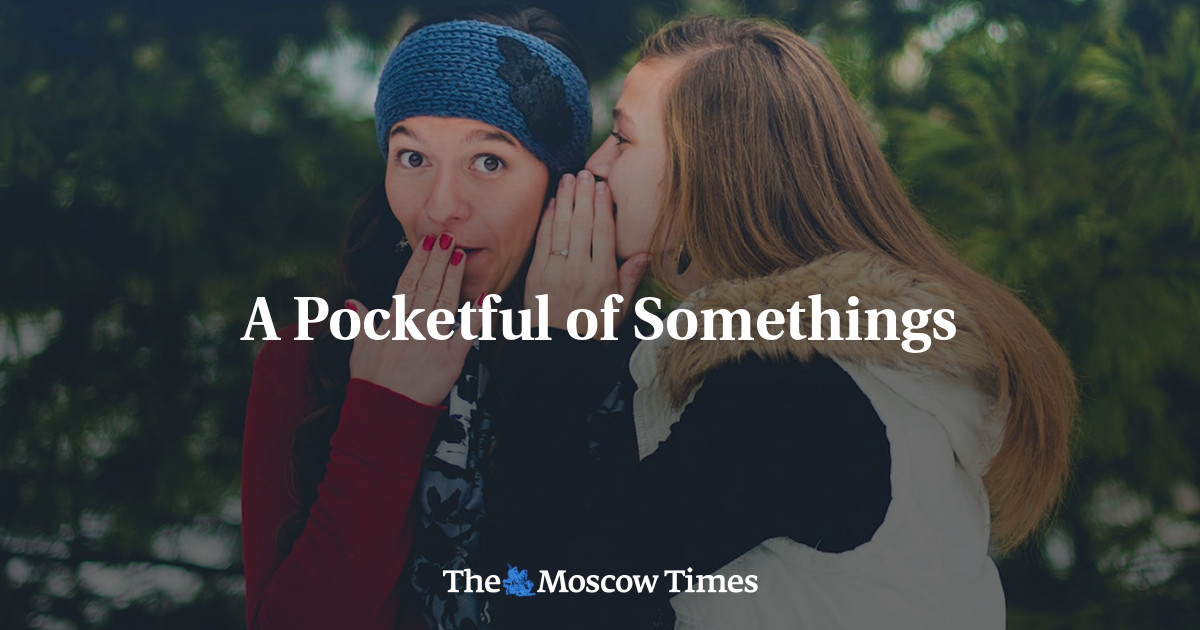
Вещь: thing, something, really something
The Russian language has lots of somethings, that is, lots of words that mean “something,” more or less. Что–то is an undefined something, что–нибудь is an unknown something, and кое–что is a something that the speaker knows but doesn’t want to say. Got that? But of course it’s not that clear-cut, and of course these aren’t the only “something” words. Что–то тут не просто (Something’s not so simple here).
In most cases, что–то is the word to use when the something is either not known or not defined. Есть что–то особенное в этой сказке, отличающее её от других фильмов того же типа (There is something special in that fairy tale that makes it different from other films in the same genre). So what exactly is it? Hard to define.
When you’re talking with friends (that is, in rather colloquial speech) you can also use что–то as an adverb to mean somewhat: Что-то плохо мне, заболею, наверное (I’m feeling kind of sick, I’m probably coming down with something.)
Что–нибудь is what you use when you don’t really know or care what the something is. Sometimes this translates as anything: Ты что-нибудь видишь? (Can you see anything?) Купи хоть что–нибудь (Just buy something — anything.) Or it can be one thing among many: Перед школой обязательно что–нибудь надо съесть: мюсли, хлеб, йогурт (Before school you ought to eat something or other — like muesli, bread, or yogurt).
Then there is my personal favorite variety of something: кое–что. You use this form when you know what the something is but it’s not important, or when you don’t want to say. I think of it as the sly something, like in the teasing phrase: Твой отец с ним встречался. Я слышала кое–что… (Your father met with him. I heard a little something about it…) Or maybe you know what the something is, but it’s no one’s business: Антон просил его кое-что тебе передать (Anton asked him to pass a few things on to you).
Another something word sounds like the opposite: нечто. Нечто has a couple of meanings. It can be a synonym for что–то, meaning some thing or feeling or event that the speaker doesn’t want to name or can’t name. It might be a good something: Их соединяло нечто большее, чем дружба. (They were united by something bigger than friendship). Or a bad — or unattractive — something: На плечах у него висело нечто, напоминавшее пиджак (Something reminiscent of a jacket hung off his shoulders).
The second meaning is something really big and important. Я читала про «Цирк дю Солей» ― это и правда нечто особенное (I read about the Cirque de Soleil — it’s really something special).
Or something great, amazing, astonishing, gorgeous, hideous — that is, нечто is an all-purpose word for anything extreme, good or bad. This is especially, but not exclusively, slang in the younger set, as in: Девочка — просто нечто! (That girl is just amazing!)
You might have some fun with all these: Сделать нечто из ничего (to make something special out of nothing). This is similar to making a silk purse out of a sow’s ear, only bigger and better.
Another version of “something extraordinary” is expressed by the strange mix of phrases что–то с чем–то (literally something with something). This can be used to describe anything that elicits extreme emotions, good or bad. When you are having a really bad day, when one thing after another goes wrong, you can exclaim Это что–то с чем–то! (What the hell is this?!) Or it can describe something shocking, like what a cabbie heard: Ты знаешь, я слышал много историй, рассказанных людьми на этом заднем сидении, но твоя — это что–то с чем–то (You know, I’ve heard a lot of stories from people sitting in the back seat, but yours takes the cake).
With this phrase it can be hard to tell if it’s a good extreme or bad extreme. Sometimes there is verbal context to help you: Это было что–то с чем–то, то есть, это был какой–то кошмар (That was really something, I mean, it was a complete nightmare). But он что–то с чем–то means “he’s really something” — and unless there is more context, he could be a horror or a hero.
And finally there is вещь (a thing). Like предмет, вещь can be a physical object: Я купила красивую вещь (I bought a lovely thing). It can be luggage, what you are told not to leave behind when disembarking from a train: Не забывайте свои вещи (Don’t forget your things). Or it can be clothing: Я убрала летные вещи (I took away my summer clothes).
It is also the term used for any work of art: На выставке он показывал свои лучшие вещи. (He showed his best works at the exhibition). Or it can be non-physical: a statement, event, performance, song, fact, or idea. Хорошее воспитание — важная вещь (A good upbringing is very important). Чувство юмора — вещь великая (A sense of humor is a marvelous thing). Советский гражданский кодекс и нынешний — две разные вещи (The Soviet civil code and today’s are totally different things). Он говорил банальные вещи (He uttered platitudes).
But an unadorned вещь is something spectacularly good. Вот это вещь! (That’s really something!)
That’s the best kind of something.
Leave a Reply